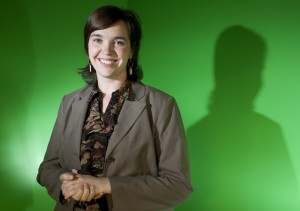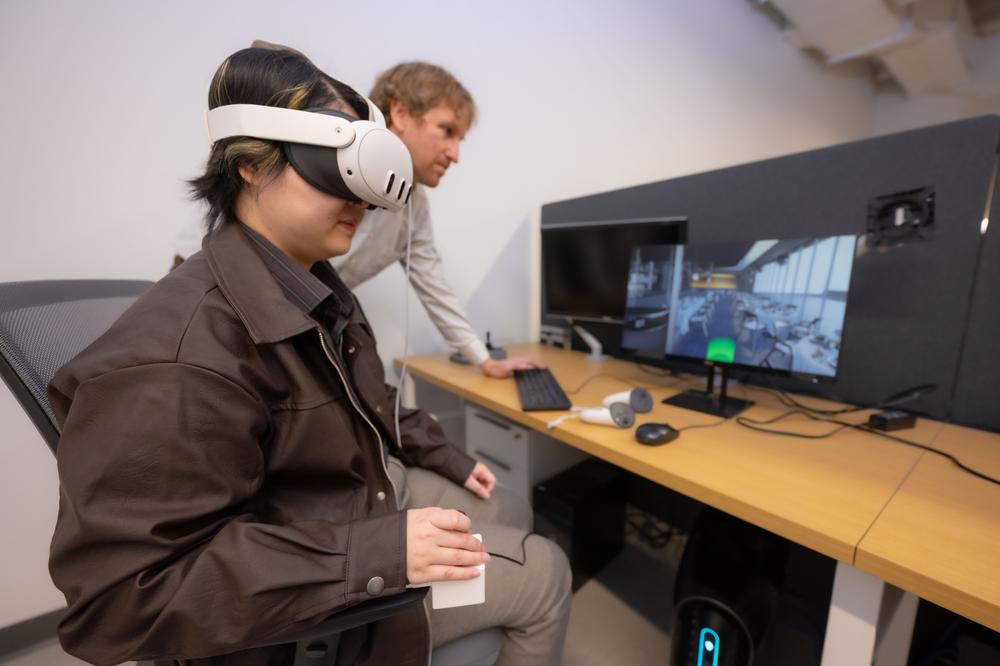 Most people who start a business never majored in business in college, but they have an inspiring entrepreneurial spirit. WPI wants to help students capitalize on their creative ideas by teaching an entrepreneurial approach to non-business majors by embedding entrepreneurship principles into courses and projects.
Most people who start a business never majored in business in college, but they have an inspiring entrepreneurial spirit. WPI wants to help students capitalize on their creative ideas by teaching an entrepreneurial approach to non-business majors by embedding entrepreneurship principles into courses and projects.
As part of that forward-thinking commitment, Jennifer deWinter, co-director of WPI’s Professional Writing Program and an assistant professor in humanities and arts, was recently invited to become a Coleman Foundation Faculty Entrepreneurship Fellow, a designation that recognizes faculty who are bringing that sense of entrepreneurship to their students.
Promoting entrepreneurship and teaching students how to start and successfully run their own business not only helps the students, but has broader impact on the economy. “I was originally drawn to this program to support our Interactive Media and Game Development (IMGD) majors at WPI,” she says. “Many of our graduating students want to stay in New England; however, New England does not have a culture of the big game studio.”
Francis Hoy, director of WPI’s Collaborative for Entrepreneurship and Education, says deWinter’s approach is on target. “Jennifer is perfect for this,” he says. “She recognized the big companies in gaming are on the West Coast and many of our grads want to stay on the East Coast. If they stay, they will probably be working for a start-up or starting their own businesses. She knew she was already dealing with future entrepreneurs.”
While one student might have a great idea and be unable to run a business, another might have few marketable ideas but possess an extraordinary business sense. By giving students the tools to bring ideas to the marketplace, deWinter hopes they will gain insight to the creative process and the business possibilities.
DeWinter will incorporate the ideas into existing classes, but will bring new opportunities, as well. “I have a multifaceted approach to this because our students are so diverse,” she says. “I intend to offer master classes, incorporate them into our production management class, work with WPI and the gaming community to launch a game incubator program, and hold training for students to pitch their ideas to investors.”
The Coleman Foundation is an Illinois-based, private grant-making foundation established in 1951 that encourages and supports educational entrepreneurship and self-employment education. One of the ways this is done is through faculty fellowships at universities and colleges nationwide for faculty who are in a non-business discipline.
This is WPI’s fourth year of involvement, says Hoy, although entrepreneurship formally began on campus in 1999 when the Collaborative for Entrepreneurship and Innovation was founded. “In business education, they are educated to be marketing specialists, financial advisors, accountants, economists,” says Hoy. “Business education hasn’t focused on entrepreneurship.” Coleman Fellows meet annually and the WPI fellows meet routinely to discuss ways to foster entrepreneurship across all disciplines on campus, noting that IQPs and MQPs are a great starting point for innovative students.
The interdisciplinary and collaborative approach is included in deWinter’s plan. “Our students have a number of professional goals that are artistically bound,” she says. “My goal is to help them think strategically about their professional goals and marry those to the skills and markets that are available to them.”
And as Hoy says, building the skills and experiencing both the achievements and failures early on is helpful. It can increase the chance of success, and also save a lot of wasted money and heartache.
Students appreciate the encouragement. “Our students sometimes have great ideas, so it’s nice to teach them how to analyze a market,” deWinter says. “More important, however, is reaching those students who are not creative geniuses. They don’t have great ideas. However, you can have professional goals and analyze market demands and respond to those in ethical and responsible ways. If a student wants to focus on creating things or have more control in their professional lives, then there are ways to systematize approaches to entrepreneurship.”


